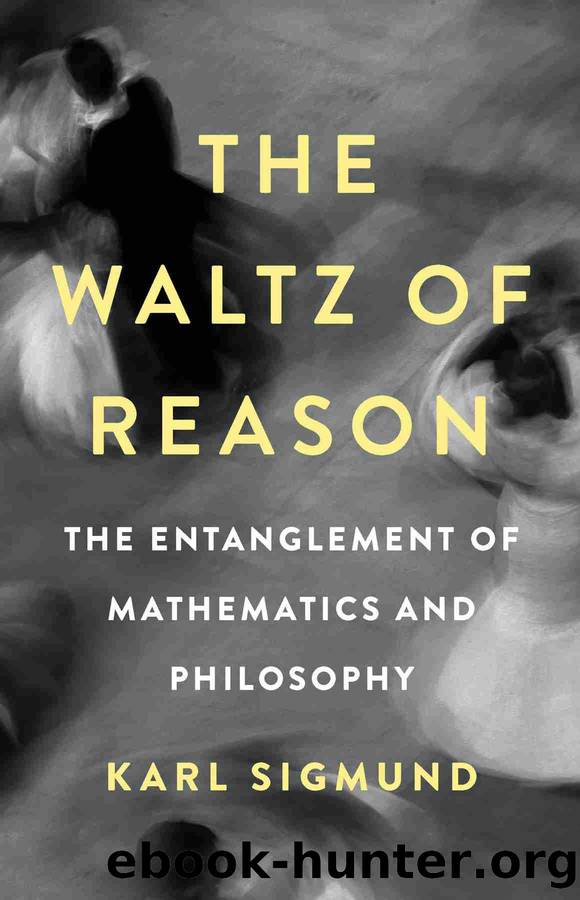The Waltz of Reason by Karl Sigmund

Author:Karl Sigmund [Sigmund, Karl]
Language: eng
Format: epub
Publisher: Basic Books
Published: 2023-12-19T00:00:00+00:00
Figure 9.2. Jean-Charles de Borda (1733â1799).
The illustrious sailor challenged Condorcet on the latterâs own turf, political arithmetic. Borda felt that elections are not fair and square if they merely consist in putting a cross next to oneâs favorite. Such a procedure does not allow voters to express what they think of the other candidates. Voters should rank all the candidates on their ballot, giving one point to the candidate they like least, two points to the next-to-last, and so on until they reach their favorite, who receives the maximal number of pointsâthree points, for instance, if there are three candidates altogether. In this way, each candidate garners a number of points on each ballot. These numbers are added: and the total sum achieved by each candidate is a measure of his or her success. The candidate with the most points, the winner of the Borda count, is elected.
The procedure is admittedly more complicated than merely counting how many voters prefer whom. Nevertheless, it is frequently used today if the number of voters is relatively small; for instance, if a jury or a committee has to make a choice.
One advantage of the method is thatâbarring tiesâthere always exists a Borda winner. Even if there is no Condorcet winner, a decision is reached. In our second example, for instance, Wendy emerges as the Borda winner. She receives 210 points in total, Victor gets 205, and Ulysses only 185. Note that a Condorcet winnerâthe candidate who dominates each one-on-one voteâneed not come first in the Borda count. It is easy to think of examples where Ann is ranked first by the absolute majority of voters, and yet fails at the Borda count. Conversely, Ann could win the Borda count without being ranked first by any voter. We can be sure that Condorcet did not take long to point this out to his rival.
Another snag, with both the Borda method and the two-round runoff voting, is that if one candidate drops out of the race, for whatever reason, the ranking of the others can be overturned. Let us go back to our first example, the one with the runoff voting. Burt won that election. However, if Ann, for instance, quits the contestâpossibly because she becomes aware that she will not win anywayâthen it is not Burt who is elected, but Conny. And a similar thing may happen in the second example, if we use the Borda count. Remember that Wendy won in that scheme. If Ulysses, however, gets cold feet and does not enter the race, it is no longer Wendy who wins, but Victor. In each case, an âalso-runâ drops out, and the winner is changed. This seems strange in an electoral race.
Moreover, opportunities for foul play abound. Let Victor be back in the contest, which isâto recallâa Borda count leading to Wendyâs win. A quarter of Victorâs supporters could craftily decide to rank Ulysses ahead of Wendy, not because they prefer Ulysses, but simply because they want Victor to win. And they succeed! (The votes are Victor 205, Wendy 200, and Ulysses 195.
Download
This site does not store any files on its server. We only index and link to content provided by other sites. Please contact the content providers to delete copyright contents if any and email us, we'll remove relevant links or contents immediately.
The remains of the day by Kazuo Ishiguro(7576)
Tools of Titans by Timothy Ferriss(6965)
The Black Swan by Nassim Nicholas Taleb(6204)
Inner Engineering: A Yogi's Guide to Joy by Sadhguru(5910)
Giovanni's Room by James Baldwin(5896)
The Way of Zen by Alan W. Watts(5809)
The Six Wives Of Henry VIII (WOMEN IN HISTORY) by Fraser Antonia(4799)
The Power of Now: A Guide to Spiritual Enlightenment by Eckhart Tolle(4767)
Astrophysics for People in a Hurry by Neil DeGrasse Tyson(4627)
Asking the Right Questions: A Guide to Critical Thinking by M. Neil Browne & Stuart M. Keeley(4599)
12 Rules for Life by Jordan B. Peterson(3745)
The Ethical Slut by Janet W. Hardy(3512)
Skin in the Game by Nassim Nicholas Taleb(3479)
Housekeeping by Marilynne Robinson(3420)
The Art of Happiness by The Dalai Lama(3391)
Double Down (Diary of a Wimpy Kid Book 11) by Jeff Kinney(3285)
Skin in the Game: Hidden Asymmetries in Daily Life by Nassim Nicholas Taleb(3273)
Walking by Henry David Thoreau(3237)
12 Rules for Life: An Antidote to Chaos by Jordan B. Peterson(3209)
